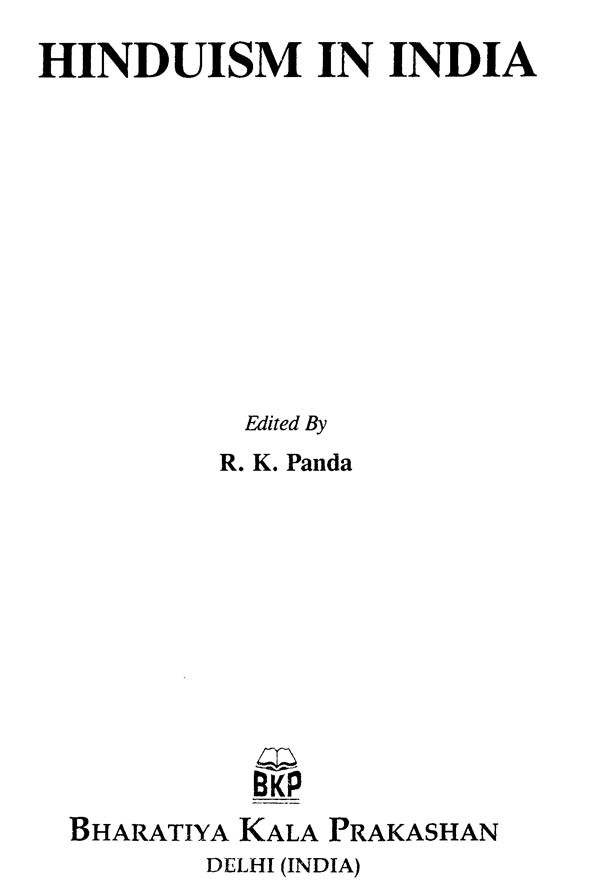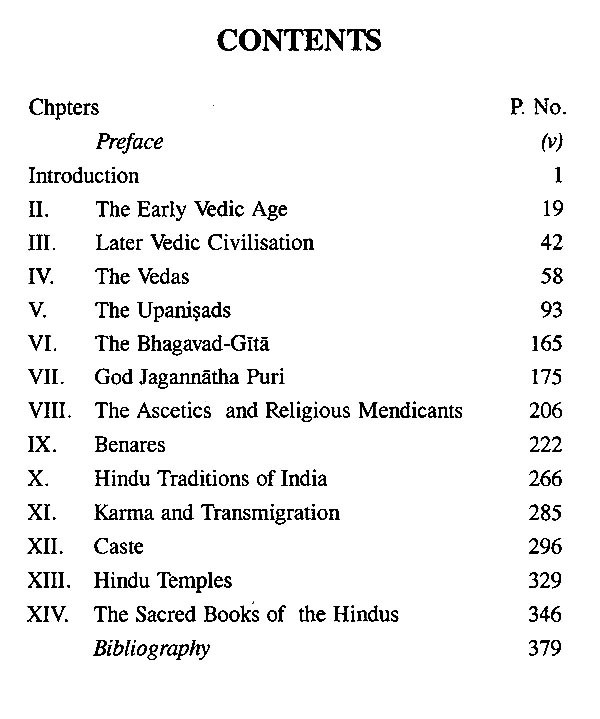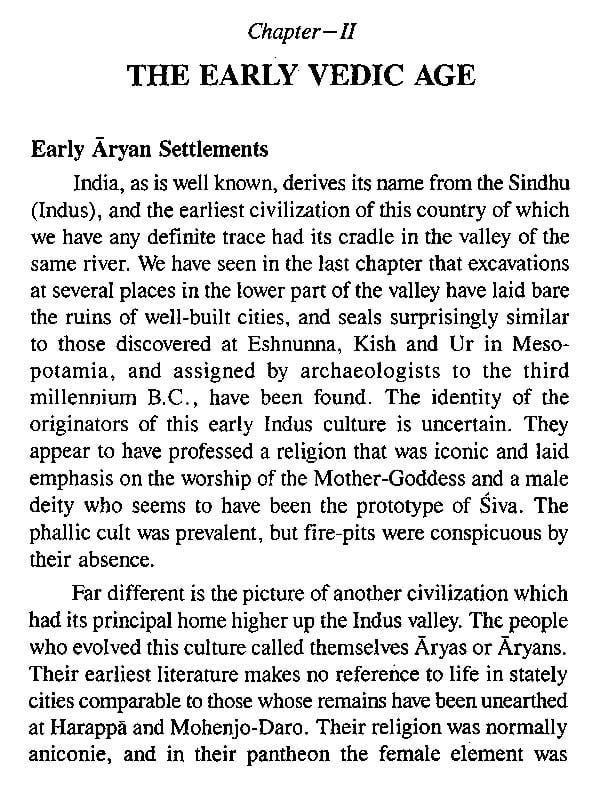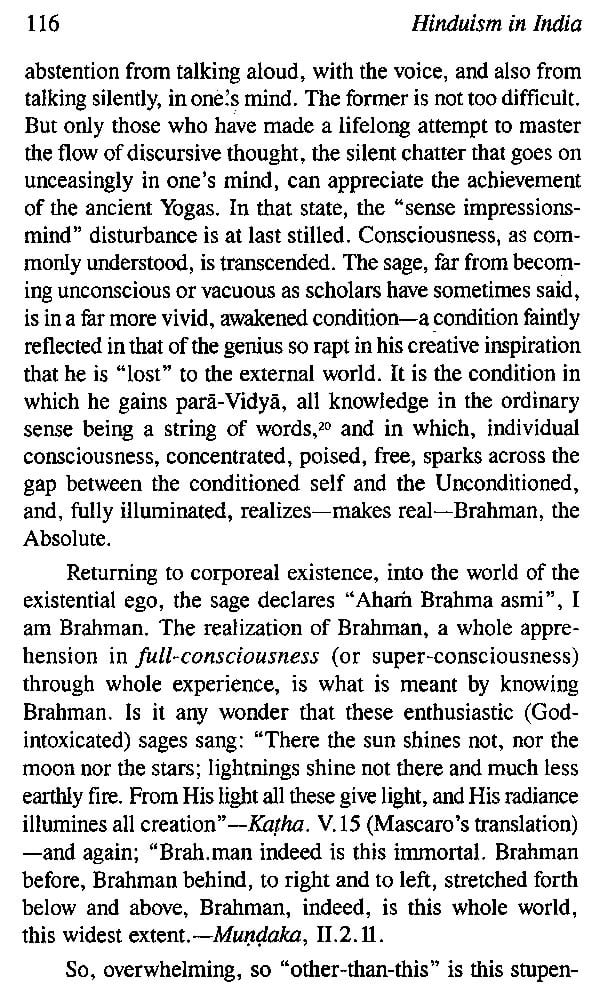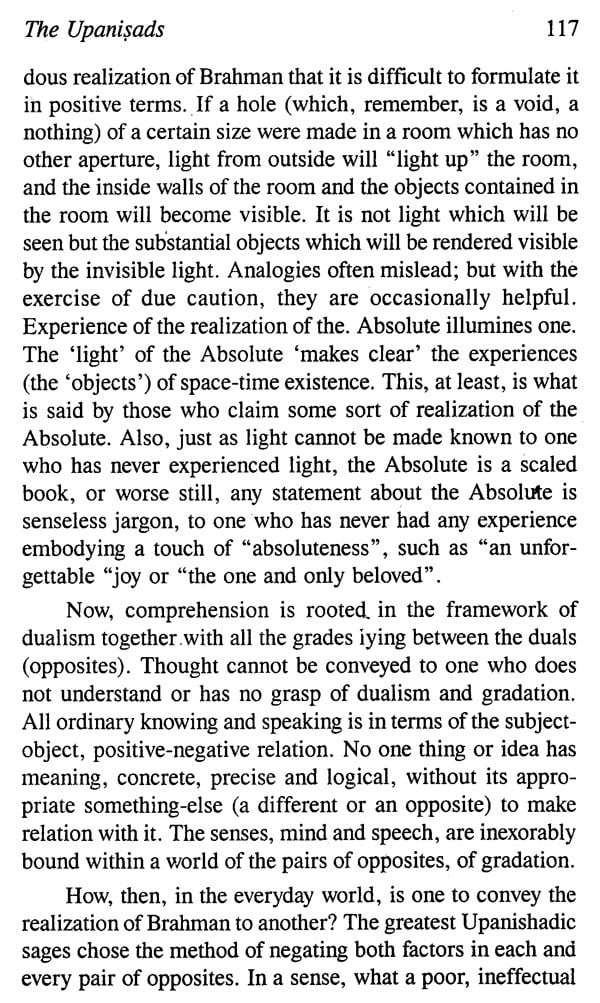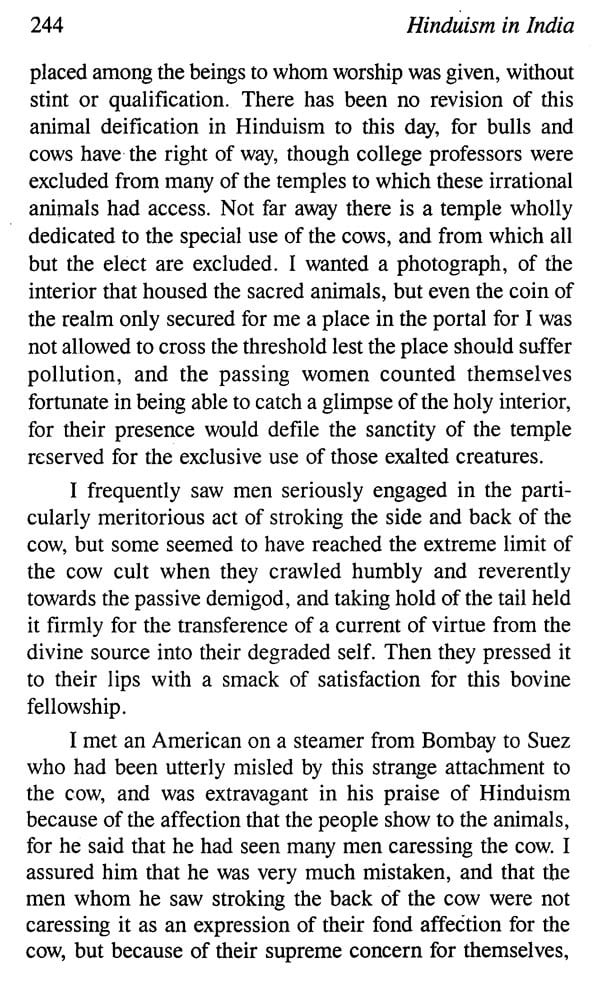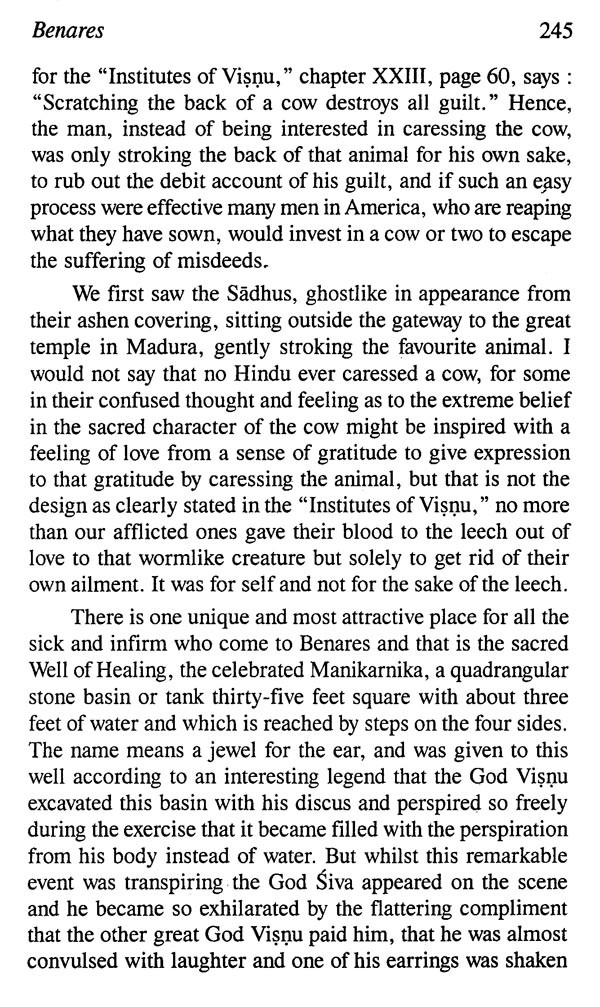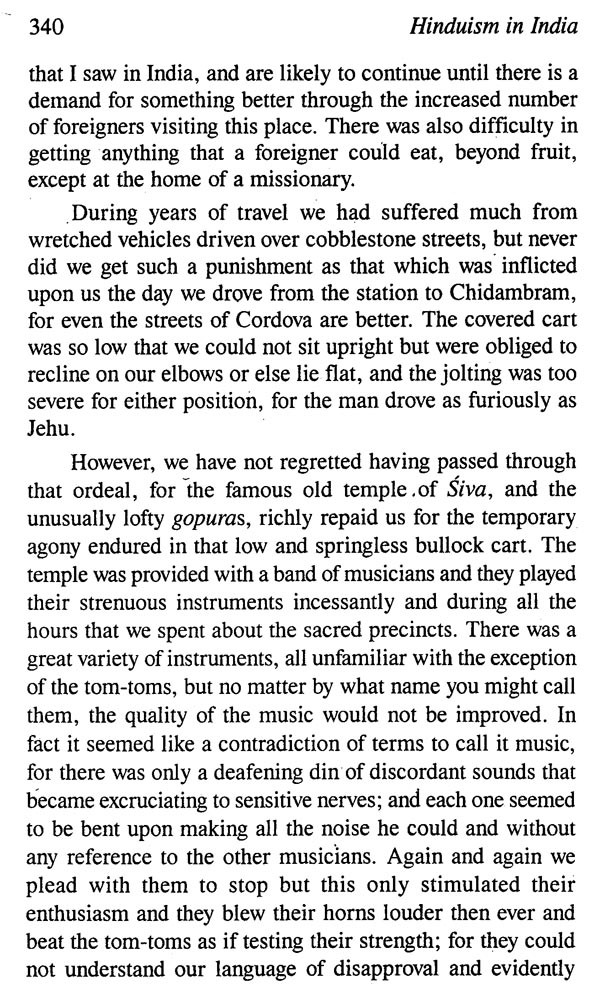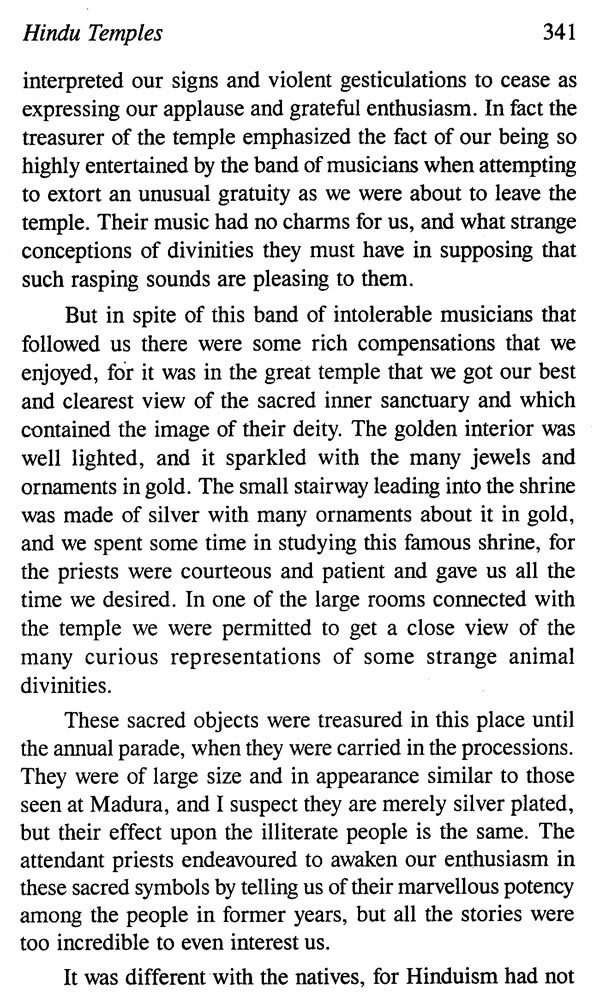
Hinduism in India
Book Specification
| Item Code: | AZE700 |
| Author: | R.K. Panda |
| Publisher: | BHARATIYA KALA PRAKASHAN |
| Language: | ENGLISH |
| Edition: | 2014 |
| ISBN: | 9788180903533 |
| Pages: | 394 |
| Cover: | HARDCOVER |
| Other Details | 9.00x6.00 |
| Weight | 630 gm |
Book Description
We look at everything relatively or by way of comparison. It is the instinctive method of every thoughtful observer, and it is inseparable from our study of human thought, philosophy and religion as outwardly expressed in the habits, customs, social and political life of a people through many centuries.
He has introduced much of the human element which is of universal interest and value, and in order to vitalize and give vivid realism to the religious thought of India, and its effect upon the practices and customs the people as effected by the dominant religion of Hinduism. In other words, He has endeavored to write so that the reader might be able to see the things about which have written.
The Aryans, came from their northwestern home after many centuries of migration, and they established themselves at Punjab and gradually extended their conquests southward. Here the ancient Vedas had their origin, and here Brahmanism arose and became a mighty priestly power; and here Buddha was born and began his reforms Buddhism encountered opposition, but it grew in power, and especially under the tremendous influence and personal support of King Aśoka. for under his reign it spread rapidly, and in time extended throughout the greater portion of India, and almost completely supplanted Brahmanism. Strange as it may seem, that the Buddhist movement began suddenly to wane, and after some centuries it declined as speedily as it once grew, in part owing to the sound playing of the influential and unyielding Brahmins. That was to make a compromise of Brahmanism with Buddhism, and from this fusion there has been evolved that degenerate and amorphous amalgam of heterogeneous beliefs known as Hinduism.
**Contents and Sample Pages**
